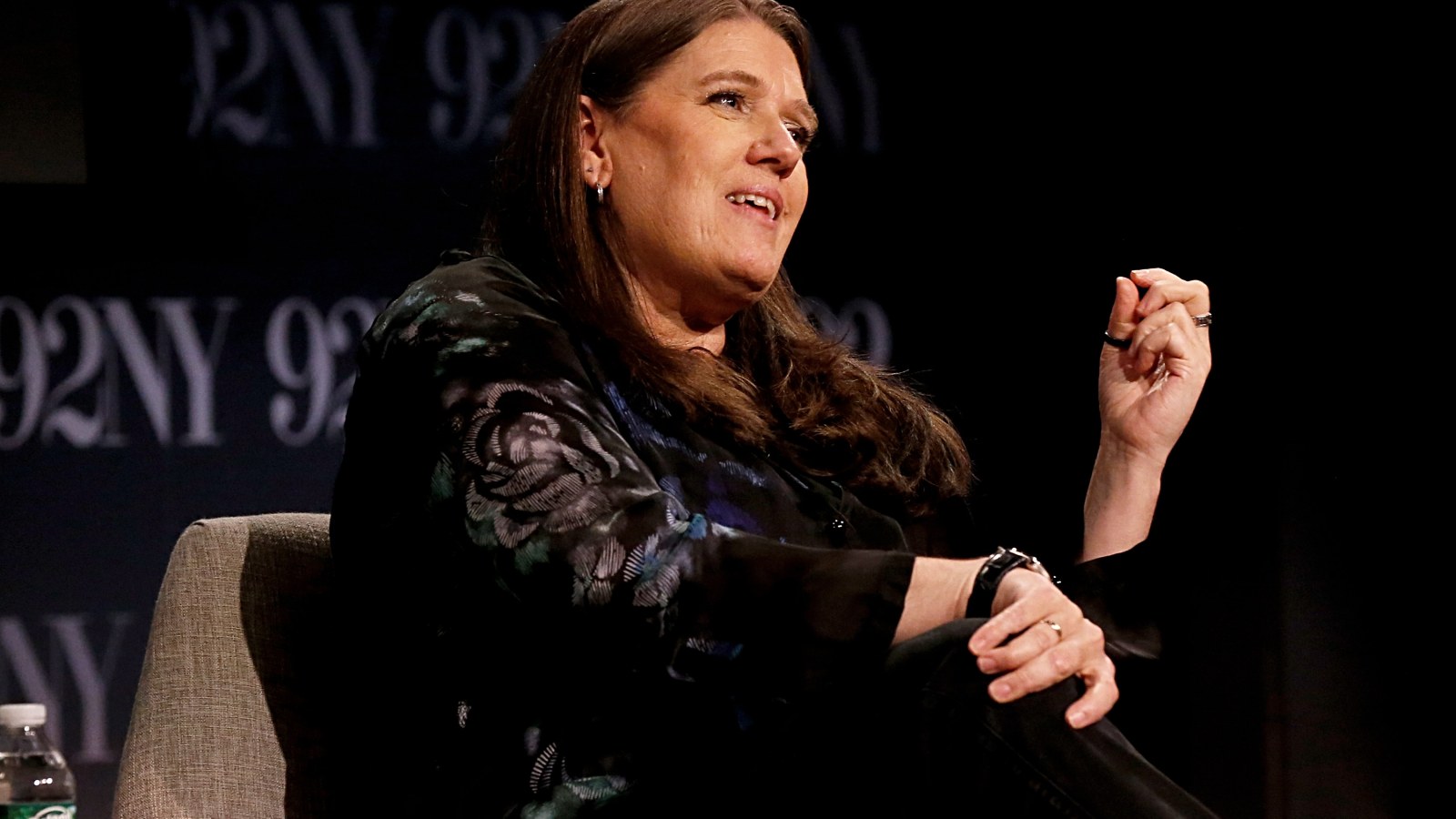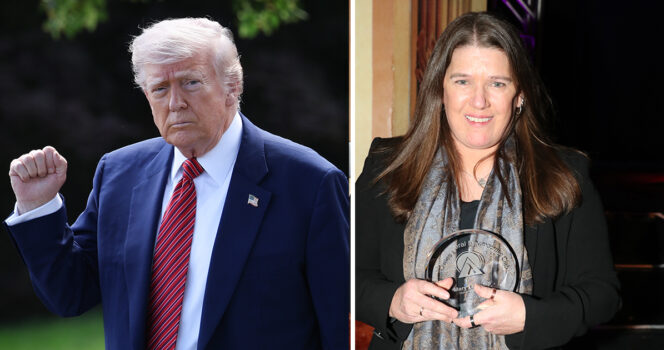Mary Trump, a clinical psychologist and niece of former U.S. President Donald J. Trump, has publicly voiced her concerns regarding the future of American democracy and her uncle’s continued influence on U.S. politics. In a series of interviews and written commentaries, she has expressed deep reservations about what another presidency—or attempts to expand executive authority—could mean for democratic norms in the United States.
Mary Trump, who authored the 2020 bestseller Too Much and Never Enough, has been an outspoken critic of her uncle, often focusing on issues related to leadership, institutional integrity, and the future of governance. Her views are informed not only by her background as a psychologist but also by her personal proximity to the Trump family.
(Sources: The Guardian, Newsweek, The Telegraph, Simon & Schuster)
Context: Presidential Term Limits Under the U.S. Constitution
Under the 22nd Amendment to the U.S. Constitution, a president may serve no more than two four-year terms, whether consecutive or not. This amendment, ratified in 1951, was established after Franklin D. Roosevelt served four terms, leading to calls for formal limits on presidential tenure.
There is currently no legal pathway for a third term without a constitutional amendment, which would require approval by two-thirds of both houses of Congress and ratification by three-fourths of U.S. states—a process that is both lengthy and politically challenging.
Despite this, some public discussions have emerged in recent years questioning whether former presidents might seek to influence or challenge existing democratic norms. These conversations have gained traction following the events surrounding the 2020 election and its aftermath.
(Sources: U.S. National Archives, Congress.gov, Library of Congress)

Mary Trump’s Viewpoint on Donald Trump’s Political Ambitions
In recent commentary, including interviews with The Telegraph and Newsweek, Mary Trump has reiterated her belief that her uncle remains focused on consolidating influence within the Republican Party and the broader political landscape. While she acknowledged that former President Trump remains eligible to run for a second (non-consecutive) term, she warned about the broader implications for institutional trust and democratic stability.
Mary Trump has not suggested any concrete plans for illegal attempts at a third term but has expressed concern that certain rhetoric or policy positions might signal a departure from traditional political behavior. Her remarks often center on the importance of voter engagement, civic responsibility, and legal safeguards to maintain the integrity of the U.S. electoral system.
(Sources: The Telegraph Interview, via Newsweek, PBS NewsHour, Mary Trump Official Website)

Trump’s Comments on Term Limits and Political Influence
While there is no verified evidence that former President Trump is planning to run for a third term, he has occasionally made remarks that draw attention to term limits. In a public appearance earlier this year, he referenced so-called “loopholes” in a general context but also stated that he does not intend to use them.
Legal experts widely agree that there are no constitutional loopholes that would allow a U.S. president to serve a third term. The 22nd Amendment has consistently been upheld as the defining legal boundary for presidential tenure.
Former President Trump has formally declared his intention to run for office again, seeking the Republican nomination for the 2024 election (which he went on to win). As of 2025, he is currently serving what would be his second term in office, having won reelection after a non-consecutive break in service.
(Sources: C-SPAN, The New York Times, U.S. Constitution – 22nd Amendment)

The Broader Concerns: Democracy, Institutions, and Accountability
Mary Trump’s central message focuses on the long-term implications for democratic institutions. She argues that it is important for the public to remain engaged, informed, and active in protecting the principles of constitutional governance. Her critique is less about individual political ideology and more about ensuring the resilience of systems that safeguard separation of powers and the rule of law.
Political scientists and historians have echoed similar concerns over the years, warning against the erosion of democratic norms across various global democracies. According to Freedom House and other independent watchdog organizations, maintaining institutional checks and balances is a key component of a healthy political system.
Mary Trump’s calls for increased public vigilance come at a time of heightened political polarization in the U.S. and ongoing debates over election integrity, judicial independence, and executive power.
(Sources: Freedom House 2024 Report, Brookings Institution, Harvard Law Review)

Public Response and Debate
Mary Trump’s comments have generated significant interest and discussion on social media, traditional news platforms, and within political circles. Supporters praise her willingness to speak out from within the Trump family, while critics argue that her views reflect a partisan perspective.
Regardless of political alignment, her statements continue to contribute to the national conversation about leadership, accountability, and the responsibilities of public officials in a constitutional democracy.
Civic groups and political commentators from across the spectrum have used this opportunity to reiterate the importance of civic education, electoral participation, and transparency in safeguarding democratic norms.

Conclusion: Constitutional Limits and the Role of Public Discourse
Mary Trump’s public remarks represent a perspective rooted in concern for democratic institutions and future governance in the United States. While some of her statements are framed through a personal lens, they have sparked valuable public discourse about the durability of constitutional checks and the role of citizens in holding elected leaders accountable.
With the 22nd Amendment clearly restricting any president from serving more than two terms, the legal structure remains firmly in place. However, the conversation about leadership style, rhetoric, and respect for institutional boundaries continues to evolve.
As political dynamics shift and new elections approach, Americans will face ongoing decisions about who leads the nation—and how that leadership aligns with the foundational principles of the U.S. Constitution.



